What are Stinging Insects?
Bees, wasps, and hornets are all examples of stinging insects. They have stingers used to paralyze their prey and defend themselves. Stinging insects are most active during the second half of the summer and early fall months. Many people have a love/hate relationship with stinging insects. We want them around because they pollinate plants and crops and predatory species help keep nuisance insect populations in check. However, we don’t want them nesting near or in our homes because they tend to be aggressive, and their venom-filled stings are painful and can trigger allergic reactions.
What Kinds of Stinging Insects Are There?
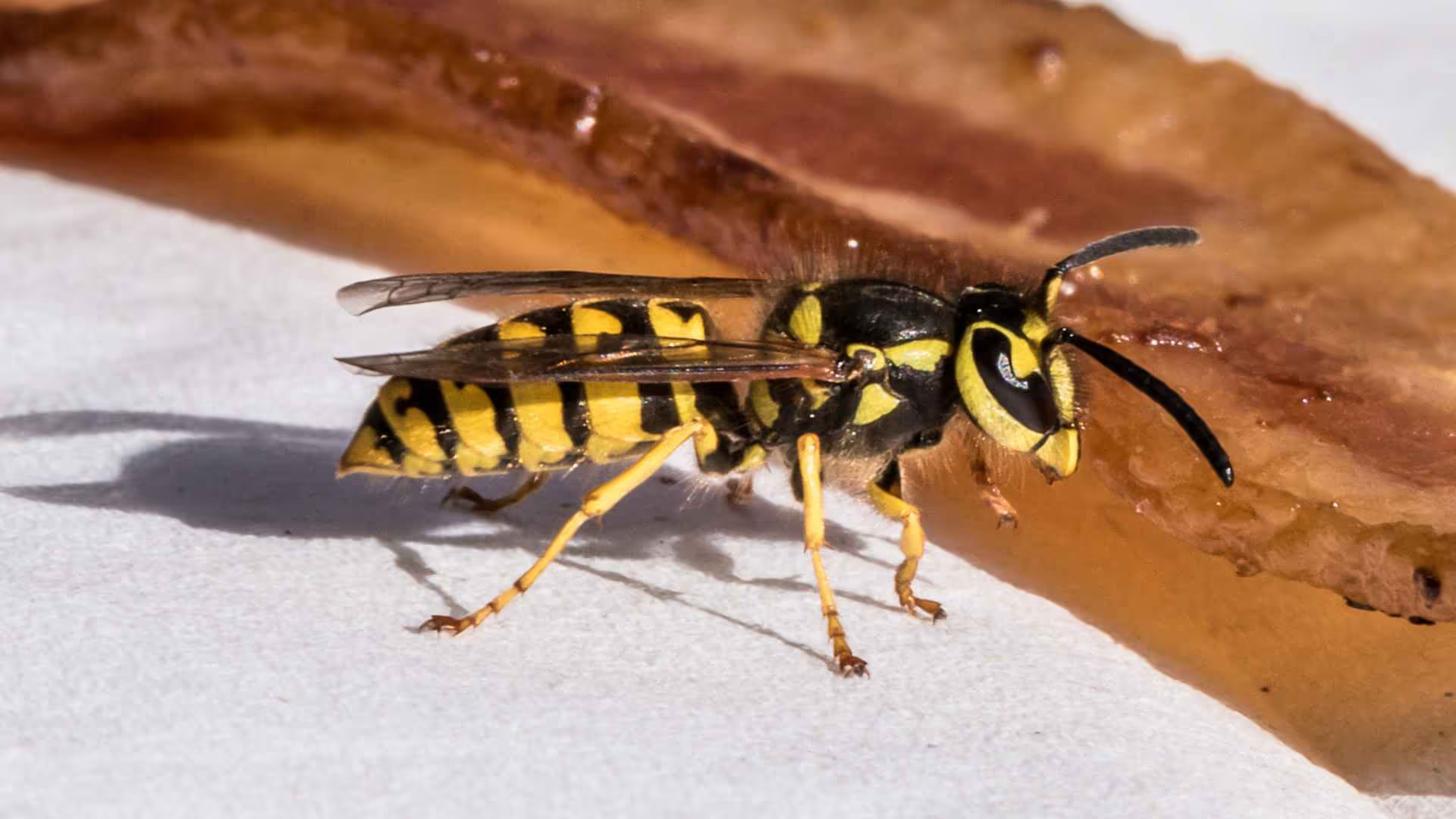
Yellow jackets are identified by their thin waist and well-defined black and yellow striped pattern. Yellow jackets are social insects. Yellow jackets live in colonies and are known for their aggressive behavior, often stinging humans and animals when they feel threatened or their nest is disturbed.
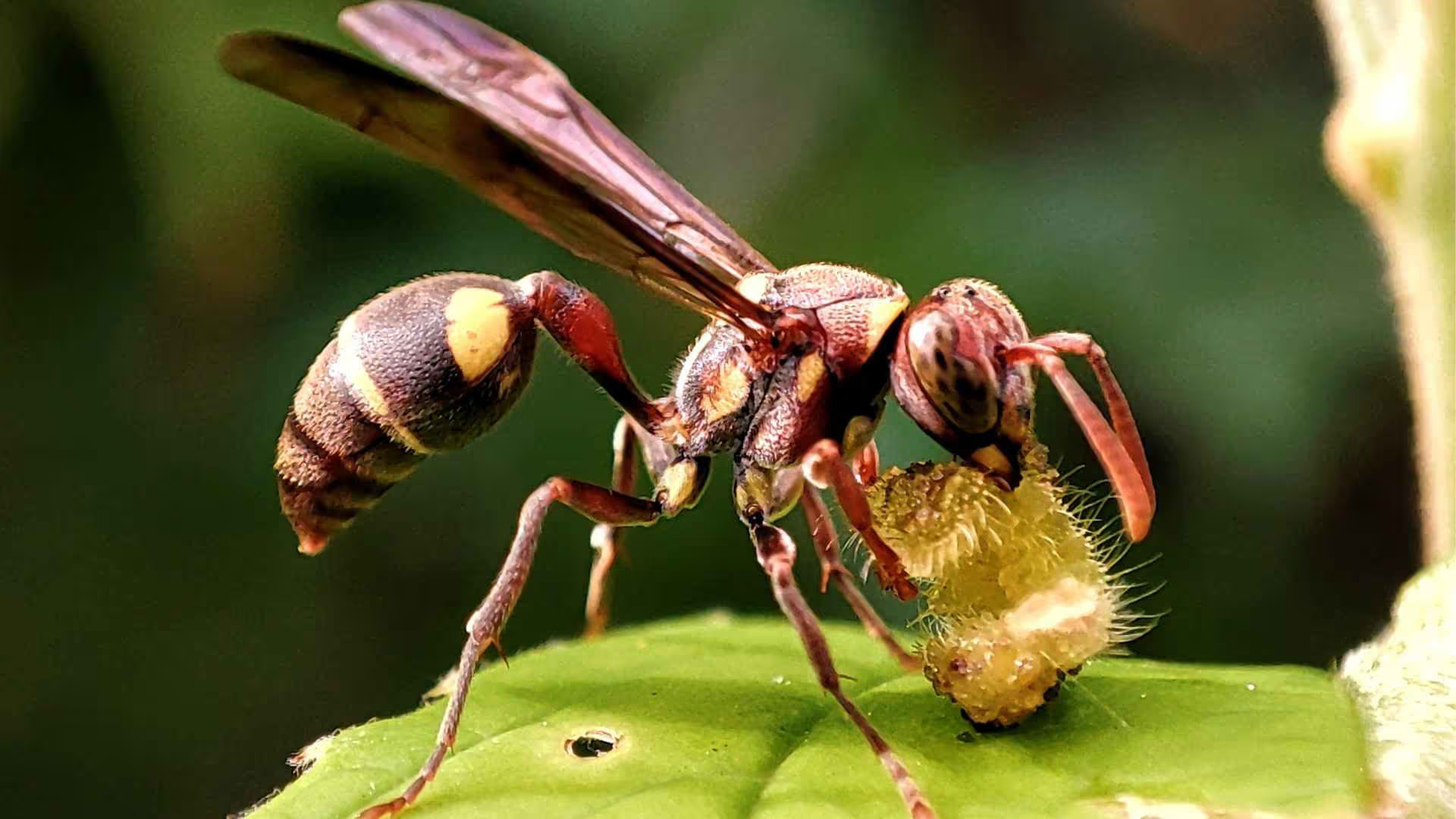
Paper wasps have a black or brown body with yellow or orange markings. They have a pinched waist and long, thin legs that dangle below their bodies when flying. Paper wasps are social insects. There are around 22 species of paper wasps found in North America alone, with many more species found worldwide. Paper wasps are named for the papery material they use to construct their nests. They create their nests by mixing saliva with wood fibers, creating a strong, papery material.
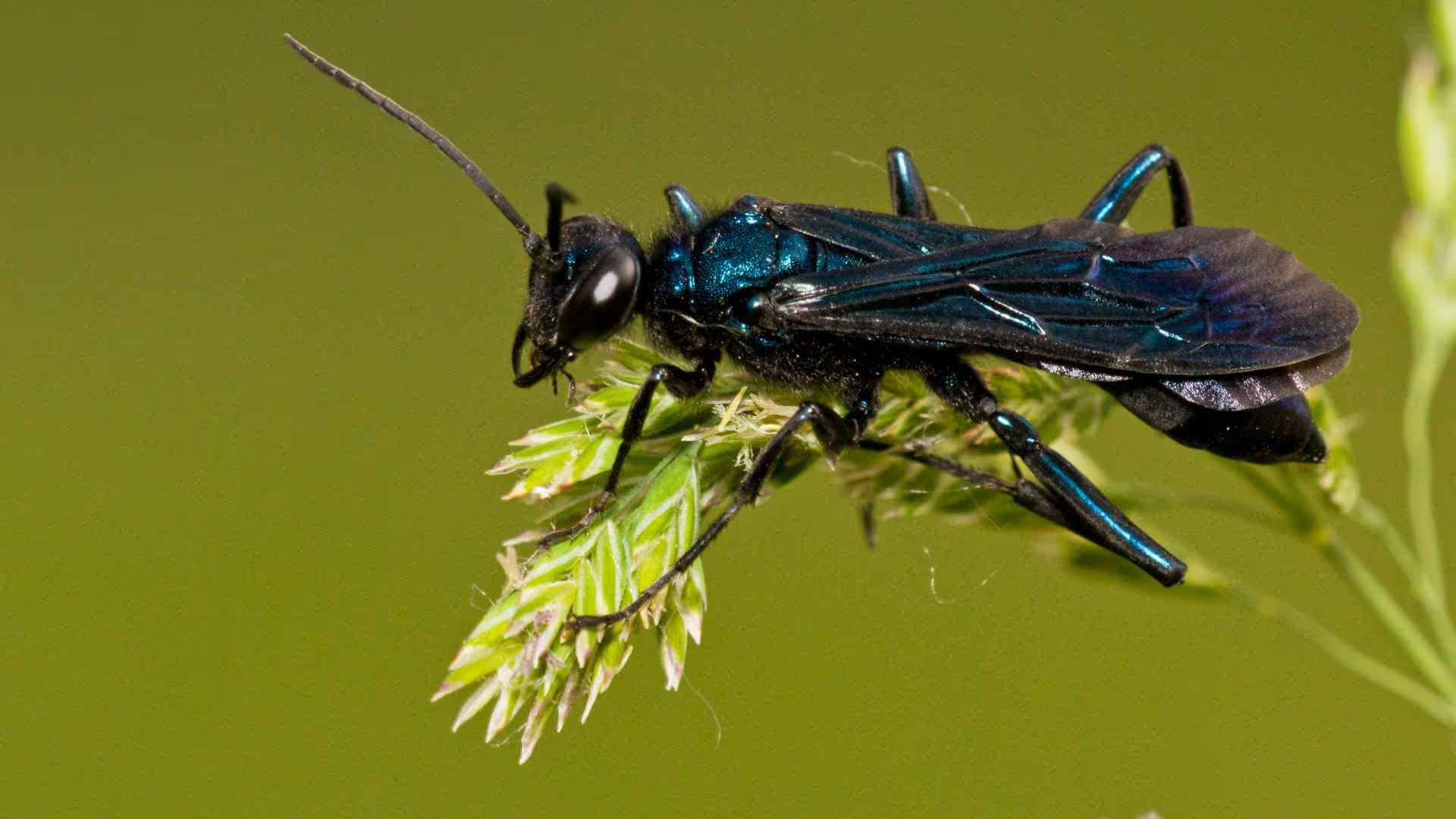
Mud daubers are a large species of solitary wasp that make their distinctive nests out of the mud. Most are black, although some have a metallic blue sheen. Mud Daubers build nests that resemble tubes of dirt on the eaves and sides of homes.
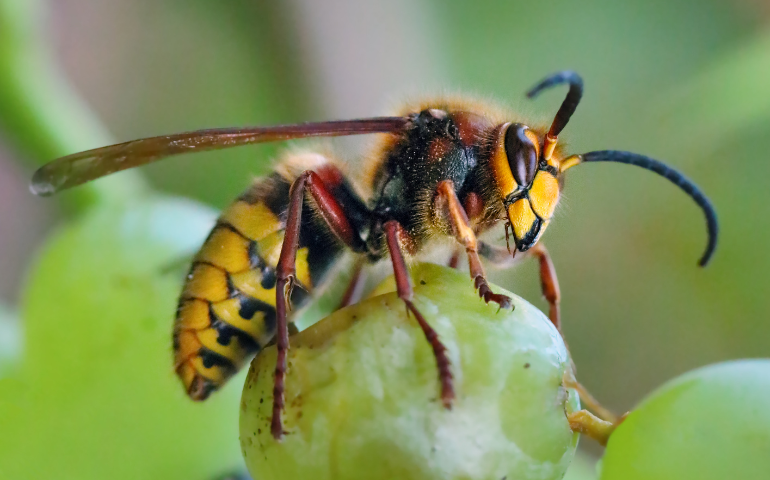
Hornets are large wasps that build paper nests, often hanging from trees or structures. European hornets and bald-faced hornets are common species. Hornets are protective of their nests and can deliver painful stings, especially if provoked.
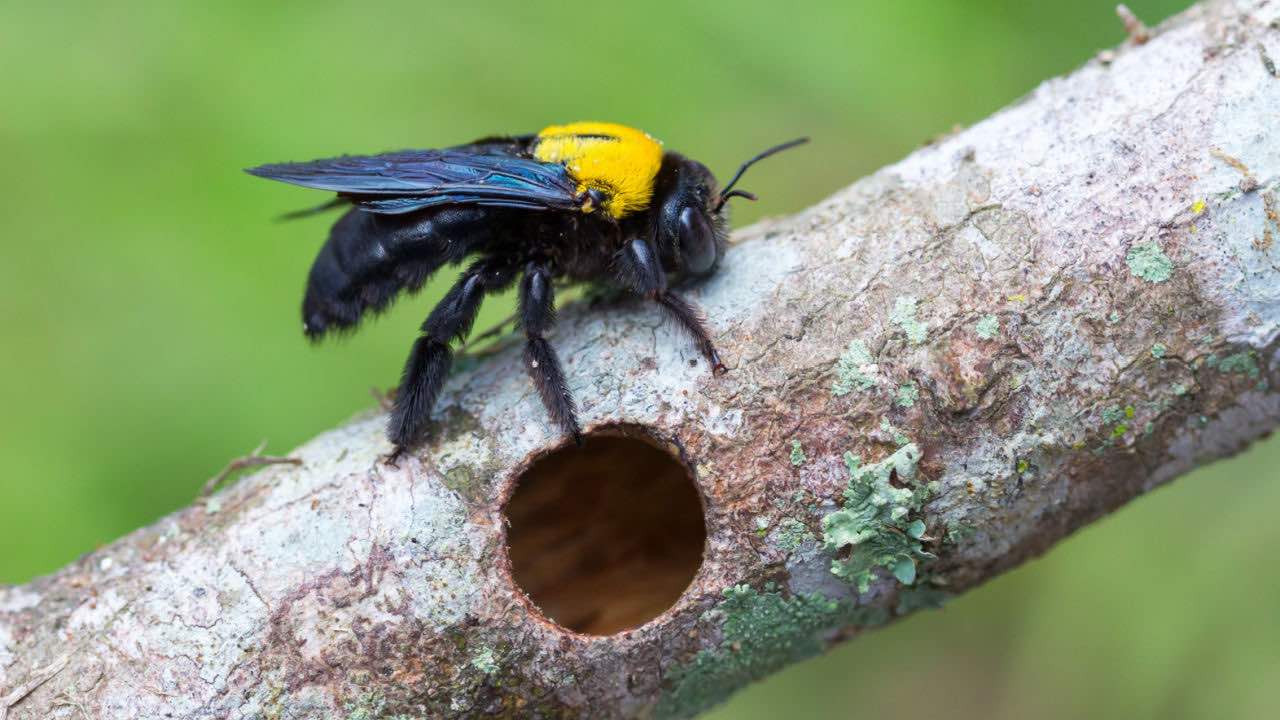
Carpenter bees are solitary bees known for boring into wood to create nests. While they are generally not aggressive, female carpenter bees can sting if provoked. Male carpenter bees are territorial but do not have stingers.
It’s important to exercise caution and respect when dealing with stinging insects, as their stings can cause allergic reactions in some individuals. If you encounter a nest or hive, it’s advisable to contact Alta Pest Control for safe and effective removal.
What Is the Most Common Stinging Insect?
Among the most common stinging insects we encounter in our line of work are yellowjackets. These aggressive wasps are known for building nests in various locations, including the ground, trees, and structures. Identifying and addressing yellowjacket nests promptly is crucial, as they can become aggressive when their colony is threatened. At Alta Pest Control, we have the expertise to handle yellowjacket infestations and other common stinging insects effectively.
How To Get Rid of Stinging Bugs
At Alta Pest Control, tackling stinging bugs is a part of our expertise. Our comprehensive approach involves:
Identification:
We start by identifying the specific stinging insect species causing the issue, whether it’s bees, wasps, or hornets.
Assessment:
Our team assesses the extent of the infestation, locating nests or hives and determining the best course of action for removal.
Safe Removal:
Using professional-grade equipment and techniques, we safely remove nests or hives, ensuring the well-being of both our team and your property.
Preventive Measures:
We implement preventive measures to reduce the likelihood of future infestations, offering you long-term relief from stinging bugs.
Our goal is to provide effective, safe, and lasting solutions tailored to your specific stinging insect problem.
How Can Alta Pest Control Protect You from Stinging Insects?
At Alta Pest Control, your safety is our priority. When it comes to protecting you from stinging insects, we follow a meticulous process:
Site Assessment:
We conduct a thorough assessment of your property to identify potential nesting sites and areas prone to stinging insect activity.
Risk Mitigation:
Our team takes steps to minimize the risk of stings during the removal process, utilizing protective gear and specialized equipment.
Education:
We provide you with valuable information on avoiding stinging insect encounters and offer tips on making your property less attractive to these pests.
Preventive Measures:
Implementing preventive measures, such as sealing entry points and addressing attractants, helps create a stinging-insect-resistant environment.
Our commitment is to keep you and your loved ones safe while effectively managing stinging insect issues on your property.
What Attracts Stinging Insects?
Understanding what attracts stinging insects is key to preventing infestations. Common attractants include:
Sweet Odors:
Stinging insects are drawn to sweet smells, making proper garbage disposal and minimizing food odors essential.
Floral Scents:
Blooming flowers and fragrant plants can attract bees and other pollinators. While these insects are beneficial, managing attractive landscaping near living spaces is crucial.
Open Food Sources:
Outdoor gatherings with open food and beverage containers can attract stinging insects. Proper storage and waste management during outdoor activities are essential.
Nesting Sites:
Stinging insects seek sheltered locations for nesting. Regular property maintenance, sealing entry points, and addressing potential nesting sites help reduce attractiveness.
At Alta Pest Control, we work with you to identify and eliminate these attractants, creating an environment less conducive to stinging insect activity. Check out our locations to see if we can service your area and contact us today!
